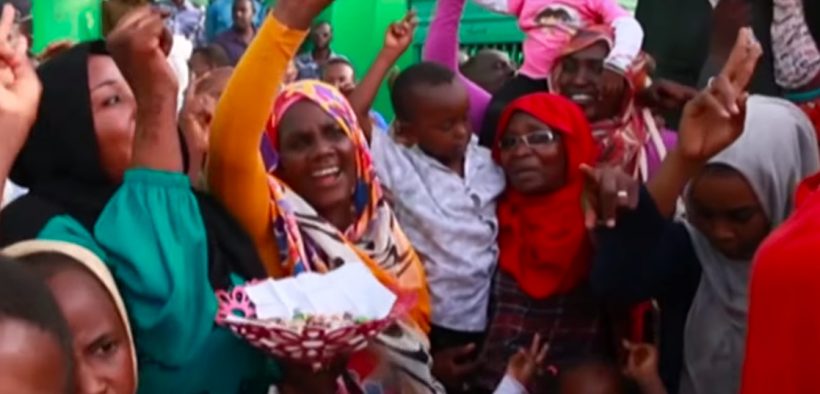Sudan Signs Power Sharing Agreement, Government to Form

According to the power-sharing agreement, a total of six civilians and five military leaders will rule the country until an election is held in three years.
Following weeks of deadly protests and a series of negotiations, both Sudan’s military transitional council and opposition groups signed on Wednesday a power-sharing deal that lays the foundations for a new era in Sudan.
Since April, when President Omar al-Bashir was toppled by means of mass protests, Sudan’s transitional military council has attempted to suppress further protests throughout the African country, while Freedom and Change opposition leaders have demanded a transitional period, involving civilian figures.
A Joint Government
The newly signed agreement is reported to stipulate the formation of a joint military-civilian sovereign council that will take the lead and rule the country by means of a rotation of power. The new 11-member council will then govern the country for just over three years, after which elections will be held.
The two sides agreed on the need for an investigation into the recent violence, but they did not yet agree on the investigation’s scope or timing.
According to the power-sharing agreement, a total of six civilians and five individuals from the military will share in ruling the country, with the military taking the reigns for a period of 21 months, followed by an 18-month civilian-led administration.
The Freedom and Change opposition party that led the mass protests over the past few months, will be tasked with nominating a prime minister and a 20-member cabinet, excluding interior and defense ministers, according to the agreement. Appointing those two ministers will be the responsibility of the military.
Sudan’s power-sharing agreement was made possible by the help and intervention of the African Union and neighboring Ethiopia, which both were instrumental in leading relentless mediations efforts between the two sides.
Hope for Change in Sudan
During a press briefing, shortly after the signing of the agreement in the Sudanese capital of Khartoum, the deputy-head of the Transitional Military Council, Hamdan Daglou known commonly as Hameedaty, described the signing as a “historic moment” for Sudan.
Meanwhile, opposition leader Ibrahim al-Amin said he believed that the upcoming government will be for all the people of Sudan.
“We have suffered enough under totalitarian regimes. Signatories of the agreement will apparently address and deal with the Sudanese people on equal footing and will allow each single citizen to contribute to the nations’ rebuilding process.”
Since last December Sudan has lived through mass demonstrations in protest of the soaring prices of goods and commodities as well as inflation. The protests recently pushed the Sudanese army to overthrow the authoritarian President Omar al-Bashir who had remained in power for more than three decades.
However, the country has been in a state of chaos after the ousting of al-Bashir with no clear successor to lead the country. Sudan’s military assumed power, but June 3 the military opened fire and murdered more than 100 protesters outside the military’s headquarters, intensifying worry that Sudan would become a military dictatorship.















